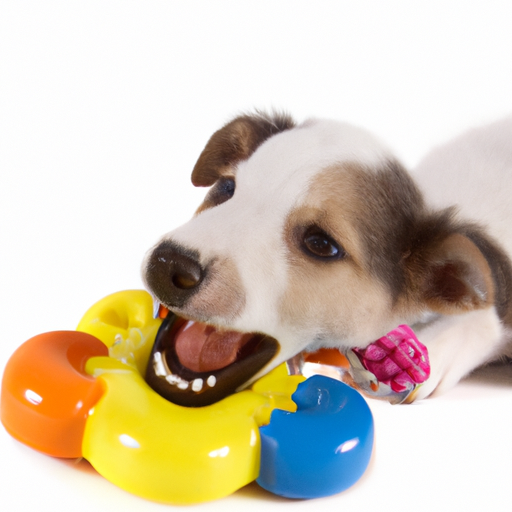As a caregiver for your furry friend, you’ve probably wondered when your puppy will start losing its baby teeth. This process, called “teething,” is a crucial phase in your puppy’s development. This article will guide you through this fascinating stage, providing you with valuable insights and practical advice.
1. Understanding Puppy Teething
Puppies are not born with teeth. Their baby teeth, also known as milk or deciduous teeth, start to appear when they are about 2 to 4 weeks old. There are typically 28 baby teeth in total.
Teething is the process where a puppy’s baby teeth fall out to make way for their adult teeth. This usually begins when your puppy is around 12 weeks old.
2. The Stages of Teething
Teething occurs in several stages:
- 2 to 4 weeks: The milk teeth begin to appear.
- 12 to 16 weeks: The baby teeth start falling out, and the permanent teeth start to grow in.
- 5 to 7 months: All the permanent teeth should have grown in.
Remember, the exact timing can vary between individual puppies and different breeds.
3. Recognizing Teething Signs
Puppies experience discomfort during teething, similar to human babies. Here are some signs to watch for:
- Increased chewing
- Swollen, red gums
- Missing teeth
- Drooling
- Changes in appetite
4. How to Soothe Your Puppy’s Teething Pain
Teething can be a painful process for your puppy. Here are some ways to help:
- Provide chew toys: They provide a safe outlet for your puppy’s chewing urges.
- Use cold items: A chilled chew toy or a washcloth can help soothe the gums.
- Feed soft foods: If your puppy is having trouble eating, offer some canned food or soak their dry food in water.
5. What Not to Do During Teething
While it’s important to soothe your puppy’s discomfort, there are also things you should avoid:
- Don’t pull loose teeth: It can cause pain and potentially lead to infection.
- Avoid hard toys: They can damage the growing adult teeth.
- Don’t ignore excessive discomfort: If your puppy seems overly distressed, consult a vet.
6. Cleaning Your Puppy’s Teeth
Maintaining oral hygiene is essential during teething. Brush your puppy’s teeth regularly using a soft toothbrush and dog-friendly toothpaste. Start this habit early to make it easier in the future.
7. What Happens to the Baby Teeth?
Most baby teeth will fall out naturally and get swallowed by your puppy without causing any harm. However, if a baby tooth doesn’t fall out as an adult tooth grows in, it’s known as a retained baby tooth. This can cause problems and may need to be removed by a vet.
8. FAQ About Puppy Teething
Q: When do puppies finish teething?
A: Most puppies finish teething by the time they’re 7 months old.
Q: What if a baby tooth doesn’t fall out?
A: If a baby tooth doesn’t fall out on its own, consult your vet. It might need to be removed to prevent future dental problems.
Q: Can teething cause my puppy to be aggressive?
A: While teething can cause discomfort and changes in behavior, it shouldn’t cause aggression. If your puppy becomes aggressive, it’s best to consult a professional.
Q: How many teeth do adult dogs have?
A: Adult dogs have 42 teeth in total, more than the 28 baby teeth.
Teething is an important phase in your puppy’s life. As a caregiver, your role is to guide them through this process as smoothly as possible. With the right information and a little patience, you can help your puppy transition into adulthood with a healthy, shiny set of teeth.



